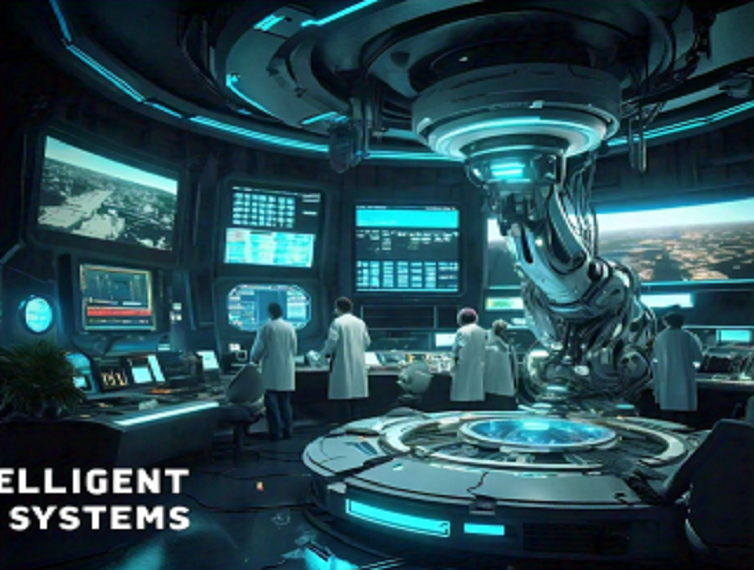Intelligent control systems represent a significant advancement in the field of control engineering, integrating principles from artificial intelligence (AI), machine learning (ML), and robotics to create more adaptive, efficient, and robust systems. These systems are designed to handle complex, nonlinear, and dynamic environments that traditional control systems struggle to manage. This article delves into the foundations, key components, applications, and future trends of intelligent control systems.
Foundations of Intelligent Control Systems
Intelligent control systems are grounded in the need for automation and advanced decision-making capabilities. They integrate various AI techniques to enhance performance, adaptability, and autonomy. The primary objectives are to manage uncertainties, optimise performance, and learn from environmental interactions.
Key Principles:
1. Adaptability: The ability to adjust control strategies in real-time to cope with changes in system dynamics or external disturbances.
2. Autonomy: Minimising human intervention through self-governance and decision-making.
3. Learning: Utilising past experiences and data to improve future performance and decision-making.
Key Components of Intelligent Control Systems
Intelligent control systems are built upon several core components, each contributing to the systems overall intelligence and functionality.
1. Sensors and Actuators:
- Sensors: Collect data from the environment or the system itself. This data can include temperature, pressure, speed, position, and more.
- Actuators: Execute control actions based on the processed data and control strategies, affecting the system's behaviour.
2. Data Processing and Communication:
- Data Processing: Involves filtering, transforming, and analysing the raw data from sensors to extract meaningful information.
- Communication: Ensures seamless data transfer between sensors, processors, and actuators, often using wireless technologies for flexibility and scalability.
3. Control Algorithms:
- Classical Control Algorithms: PID (Proportional-Integral-Derivative) controllers, linear quadratic regulators (LQR), and others.
- Intelligent Control Algorithms: Include fuzzy logic, neural networks, genetic algorithms, and hybrid approaches.
4. Learning and Adaptation:
- Machine Learning Models: Utilise supervised, unsupervised, and reinforcement learning techniques to model system behaviours and predict outcomes.
- Adaptive Control: Continuously updates control parameters to maintain optimal performance despite changing conditions.
5. Decision-Making:
- Rule-Based Systems: Implement predefined rules for decision-making.
- Optimisation-Based Systems: Use mathematical optimisation techniques to find the best control actions.
- AI-Based Systems: Employ advanced AI techniques like deep learning and reinforcement learning for complex decision-making tasks.
Applications of Intelligent Control Systems
Intelligent control systems find applications across various industries, significantly enhancing operational efficiency, safety, and productivity.
1. Manufacturing and Robotics:
- Industrial Automation: Intelligent controllers optimise production lines, reducing downtime and improving quality control.
- Robotic Systems: Autonomous robots use intelligent control for navigation, manipulation, and interaction in dynamic environments.
2. Aerospace and Defence:
- Unmanned Aerial Vehicles (UAVs): Intelligent control systems enable UAVs to perform complex missions autonomously, such as surveillance and delivery.
- Flight Control Systems: Enhance the stability and performance of aircraft under various flight conditions.
3. Automotive:
- Autonomous Vehicles: Intelligent control is crucial for navigation, obstacle avoidance, and decision-making in self-driving cars.
- Advanced Driver-Assistance Systems (ADAS): Improve vehicle safety through adaptive cruise control, lane-keeping assistance, and automatic braking.
4. Energy Systems:
- Smart Grids: Intelligent control optimises energy distribution, integrates renewable sources, and enhances grid reliability.
- Building Automation: Controls heating, ventilation, and air conditioning (HVAC) systems for energy efficiency and comfort.
5. Healthcare:
- Medical Devices: Intelligent control systems regulate devices like insulin pumps, prosthetics, and diagnostic equipment.
- Robotic Surgery: Enhances precision and control in minimally invasive surgical procedures.
Challenges and Future Trends
Despite their potential, intelligent control systems face several challenges that must be addressed to realize their full capabilities.
1. Challenges:
- Complexity: Designing and implementing intelligent control systems is complex, requiring interdisciplinary knowledge.
- Data Dependence: High-quality data is crucial for training and operation, but it can be difficult to obtain in some environments.
- Robustness: Ensuring reliability and safety in unpredictable and potentially hazardous conditions is a significant challenge.
- Ethical and Regulatory Issues: Autonomous systems must comply with ethical standards and regulatory requirements, particularly in healthcare and transportation.
2. Future Trends:
- Integration of AI and IoT: Combining AI with the Internet of Things (IoT) will lead to more interconnected and intelligent systems.
- Advancements in ML Algorithms: Continued improvements in machine learning algorithms will enhance system learning and adaptation capabilities.
- Edge Computing: Processing data closer to the source (edge computing) will reduce latency and improve real-time decision-making.
- Human-Machine Collaboration: Enhancing collaboration between humans and intelligent systems will lead to more effective and intuitive control solutions.
Intelligent control systems represent a transformative shift in control engineering, leveraging advanced AI and ML techniques to create more adaptive, efficient, and autonomous systems. Their applications span numerous industries, promising enhanced performance, safety, and innovation. However, realising their full potential requires addressing significant challenges related to complexity, data quality, robustness, and ethical considerations. As technology continues to evolve, the future of intelligent control systems looks promising, paving the way for more sophisticated and capable autonomous systems.
